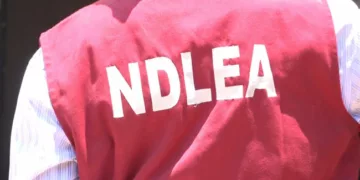A group of women organisations has tasked the media to set agenda for the nation on the health status of Nigerian women which it said “is in a state of emergency.”
The group comprising the National Association of Women Journalists (NAWOJ), Pathfinder International and She Forum Africa made this known at a press briefing familiarising the media on the Voice for Women’s Health (#ICOMMIT) campaign in Abuja.
The briefing was due to the meeting held by critical stakeholders on women issues held on March 30, 2023.
Speaking on the emergency status of the women’s health in the nation, the country director, Pathfinder International, Dr Amina Dorayi said that one in four of global maternal deaths occur in Nigeria, while a woman dies every 10 minutes in a healthcare institution in the country. Compounding the maternal mortality rates are issues of early marriage, teenage pregnancy, inadequate access to reproductive health system services and infrastructure and limited access to healthcare.
“This campaign aims at creating awareness on the state of emergency of women’s health in Nigeria, and solicit multisectoral support by leveraging on influential voices for women in our different communities to amplify advocacy that will hold the incoming leaders accountable to prioritize the health of women in Nigeria,” Dorayi said.
Sharing her experiences on the preventable deaths of women and children in the rural areas and outskirt communities in the FCT owing to lack of access to healthcare, absence of doctors, and the poor remuneration of nurses – who earn as low as the minimum wage N30,000, midwife Hauwa Ibrahim said women need patience, financial and familial support – to attain a healthy living. “We are asking the media to help amplify our issues to the government to provide true access to healthcare,” she said.
In an impassioned speech to the media, executive director and founder of International Society for Media and Public Health (ISPH), Moji Makanjuola challenged media men to go beyond routine reports to piece stories around women’s health from diverse perspectives that ask uncomfortable but pertinent questions that the public seek answers to.
Noting that women have failed their fellow women at the governance level, Makanjuola believes it lies on the press to accentuate the objectives and issues raised by the campaign.
“Women are the ones who bear the weight of wars or conflicts, they are ones who are raped. They are the ones who are left homeless, and to cater for their children health and physical needs. Who is looking after women’s health?
On her part, the president of NAWOJ, Ladi Bala urged the media, particularly the female journalists, to highlight issues around women’s health to attract the attention of critical stakeholders to address them early.
“At our different media organisations, we can start setting agenda. We need you to take time to create contents that will elicit positive response. Let our reports raise questions and demands on behalf of the Nigerian people, that critical steps and critical policies need to be put in place and implemented,” she said.
We’ve got the edge. Get real-time reports, breaking scoops, and exclusive angles delivered straight to your phone. Don’t settle for stale news. Join LEADERSHIP NEWS on WhatsApp for 24/7 updates →
Join Our WhatsApp Channel









